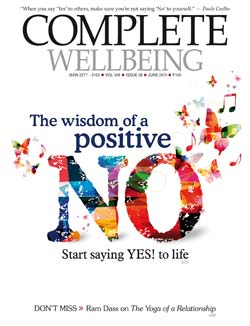
Oprah once asked her audience to choose between being liked and being respected and guess what? Almost everyone preferred “being liked”. Now, there’s no problem with wanting to be liked—we all want it. The problem arises when wanting to be liked becomes more important than being happy. When you want to be liked and accepted at any cost, you say Yes, when you really want to say No, and thus strike a poor bargain. You please another while devaluing yourself.
Warren Buffett once said, “The difference between successful people and very successful people is that very successful people say ‘no’ to almost everything.” I’d say this distinction also applies between happy and very happy people. Very happy people are those who have mastered the art of saying No without creating rifts, hurting sentiments and feeling guilty. These are people who have realised that saying Yes when you really want to say No is a losing proposition for everyone involved. Such a Yes keeps you trapped in an unhappy situation, giving rise to all kinds of negative emotions.
Perhaps you say Yes because you want to avoid disagreement and confrontation —but what’s the use of an ‘agreement’ that leaves you feeling resentful and unhappy? Such a Yes is a No to yourself—a negative Yes.
Fortunately, there’s a way to say No without putting your relationship at stake, says William Ury in this month’s cover story. It’s called positive No. Once you understand how to say it, you will be able start saying No without feeling guilty or hurting others.
“A positive No requires you to challenge the common assumption that either you can use power to get what you want [at the cost of relationship] or you can use relationship [at the cost of power]. It calls on you to use both at the same time, engaging the other in a constructive and respectful confrontation,” says Ury. He explains that while the ordinary No begins and ends with No, a positive No begins with Yes and ends with Yes.
Once you’re done reading the cover story, you can start using the positive No in your life, and enjoy the freedom it brings along—the freedom to say Yes to those things that matter the most to you. Now you know why Australian actress Claudia Black believes, “Saying no can be the ultimate self-care.”

